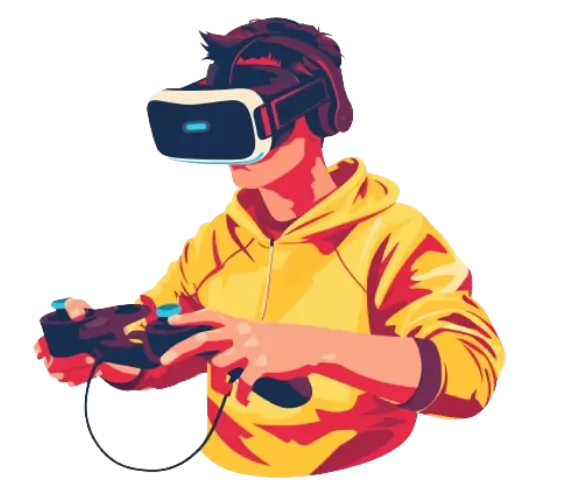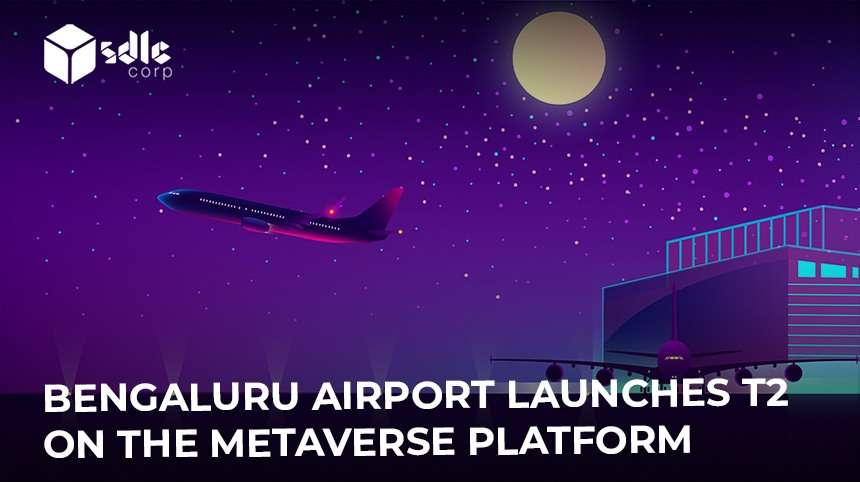Introduction
The concept of virtual worlds has been around for decades, but their role in shaping the Metaverse gaming experience is more profound now than ever. As technology continues to evolve, virtual worlds are creating immersive environments that redefine how players interact, socialize, and engage with digital content. These virtual spaces are no longer just about entertainment; they are becoming hubs of economic activity, creativity, and even professional development. In this blog, we’ll explore how virtual worlds are transforming the Metaverse gaming experience and examine the roles played by Metaverse Game Development, Blockchain Game Development, NFT Game Development, and AI Development Services.
Evolution of Virtual Worlds in Gaming
Virtual worlds began as simple digital spaces where players could engage in basic activities, such as exploring environments and completing quests. Over time, advancements in technology, including better graphics, faster processing, and enhanced connectivity, have transformed these worlds into complex ecosystems where players can live entire alternate lives.
In the context of Metaverse Game Development, these virtual worlds are becoming even more immersive and expansive. The Metaverse aims to blend multiple virtual worlds into a cohesive, interconnected experience where users can move seamlessly between gaming environments, social platforms, and other digital realms. This interconnectedness is not only changing how we play games but also how we live and work in these digital spaces.
Transform Your Gaming Experience Today!
A Metaverse Game Development Company specializes in creating immersive and engaging metaverse games for online and offline platforms.

Role of Metaverse Game Development Companies
The rise of virtual worlds in the Metaverse wouldn’t be possible without the expertise of Metaverse Game Development Companies. These companies are pioneering new ways to create, manage, and maintain virtual worlds that cater to millions of users simultaneously. Their role goes beyond game design; they must ensure that these virtual environments are scalable, secure, and engaging.
For example, game development companies are incorporating features like virtual real estate, where users can purchase, sell, or trade digital assets. These assets range from simple objects like avatars and skins to entire plots of land within the game world. The ability to own and trade virtual property is redefining the relationship between players and their gaming environment, offering them a stake in the development and evolution of the world they inhabit.
Blockchain and NFT Integration in Virtual Worlds
Blockchain technology and NFTs (Non-Fungible Tokens) have introduced an entirely new dimension to virtual worlds. Blockchain Game Development enables secure and transparent transactions within these worlds, ensuring that players’ assets are protected and ownership is indisputable. This level of security is essential as virtual worlds become more intertwined with real-world economies.
NFT Game Development has further amplified the role of virtual worlds by giving players true ownership of in-game items. Unlike traditional games where assets are controlled by the game developers, NFTs allow players to buy, sell, or trade their assets outside the game’s ecosystem. This decentralized approach is giving players more control over their digital assets, enabling them to earn real-world money by trading virtual items.
NFTs also play a significant role in creating unique, personalized gaming experiences. Players can own rare items or skins that are unique to them, adding another layer of engagement and personalization to the Metaverse gaming experience.
AI in Virtual World Creation and Management
Artificial Intelligence is another key player in shaping the Metaverse gaming experience. AI Development Services are being leveraged to create more intelligent, adaptive virtual worlds. AI-driven NPCs (Non-Playable Characters) can interact with players in more meaningful ways, learning from their behavior and adapting their responses to provide more immersive experiences.
AI is also being used to manage the complexity of virtual worlds. These digital spaces are massive, with millions of players interacting in real-time. AI helps in maintaining the balance, ensuring that these environments run smoothly without lag or glitches. From managing in-game economies to moderating social interactions, AI is crucial in maintaining the integrity and functionality of virtual worlds.
Moreover, AI is enhancing the design of these worlds. Procedural generation techniques driven by AI allow developers to create vast, detailed environments without having to design every aspect manually. This not only speeds up the development process but also enables the creation of more complex and dynamic worlds where players can discover new elements every time they play.
Level Up Your Metaverse Game! Get Expert Development Services Now!
At SDLC Corp, we create immersive metaverse games that engage players on any platform.

Social Interaction and Community Building
One of the most significant ways virtual worlds are shaping the Metaverse gaming experience is through social interaction. Unlike traditional games, where interaction is often limited to chat or multiplayer modes, virtual worlds in the Metaverse are designed to foster real-time, immersive social experiences.
Players can attend virtual concerts, collaborate on projects, or even host meetings within these virtual worlds. The sense of presence and community is amplified by the immersive nature of these spaces. Players are not just communicating via text or voice; they are interacting in a shared space where their avatars can engage in meaningful, social activities.
Metaverse Game Development Services are focused on creating environments that encourage these social interactions. The success of a virtual world often depends on how well it can bring people together. By designing spaces that promote community building, developers are ensuring that their virtual worlds remain active, engaged, and populated with players.
The Economic Impact of Virtual Worlds
Virtual worlds are also becoming significant drivers of economic activity. In the Metaverse, players can earn real-world money by participating in in-game economies. Whether through the sale of NFTs, the trading of virtual property, or the completion of in-game tasks, virtual worlds are providing players with new income opportunities.
Game Development Services are tapping into this potential by creating platforms that facilitate these transactions. They ensure that the virtual economies within their games are balanced and sustainable, allowing players to thrive without undermining the integrity of the game. This economic layer adds a new dimension to the gaming experience, where players can not only enjoy the game but also benefit financially.
Explore our affordable Metaverse game development services
We design innovative metaverse games at SDLC Corp that redefine immersive experiences across platforms. Partner with us to craft something truly unforgettable.

Customization and Personalization in Virtual Worlds
Customization is a cornerstone of the virtual world experience. Whether it’s designing your avatar or purchasing a virtual home, the ability to personalize your experience is a key driver of engagement. Metaverse Game Development Companies understand this and are offering players more ways to customize their experience.
NFTs play a vital role in this aspect of gaming as well. Players can purchase or earn unique items that set them apart from others, adding to the sense of ownership and identity within the virtual world. Personalization options are expanding beyond simple cosmetic changes. Players can now alter the environment, influence the game narrative, and even contribute to the development of the world they inhabit.
The Future of Virtual Worlds in the Metaverse
As virtual worlds continue to evolve, they will become an even more integral part of the Metaverse gaming experience. The convergence of technologies like blockchain, NFTs, AI, and virtual reality will create more immersive, interconnected worlds where the lines between digital and physical realities blur.
Metaverse Game Development Services are at the forefront of this evolution, driving innovation and pushing the boundaries of what is possible. The future will see even more complex and engaging virtual worlds, offering players endless possibilities for exploration, creativity, and social interaction.
Conclusion
Virtual worlds are not just shaping the Metaverse gaming experience; they are revolutionizing the entire gaming industry. With the integration of blockchain, NFTs, AI, and advanced game development techniques, these digital spaces are becoming more immersive, interactive, and economically viable. As Game Development Company and Blockchain Game Development companies continue to innovate, the future of virtual worlds in the Metaverse looks brighter than ever.
Players can expect even more personalized, immersive experiences where they have true ownership of their assets and greater control over their interactions within these worlds. The Metaverse is not just the future of gaming—it’s the future of digital interaction, commerce, and community building.



